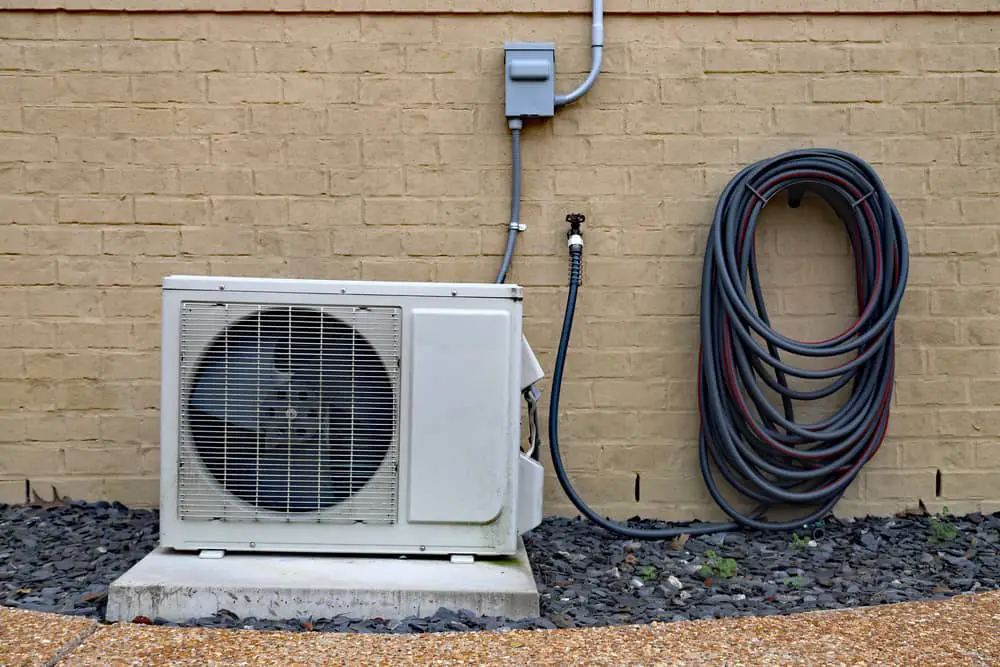Heating and cooling a mobile home can be challenging, but several options are available to help keep your home comfortable.
One of those is the mini split.
So, Are Mini-Splits Good for Mobile Homes?
The short answer is yes. They offer energy efficiency, easy installation, zone control, low noise, and versatility.
Six Benefits Of Installing Mini Splits In A Mobile Home?
Mini-splits offer several benefits over traditional HVAC systems. Here are five benefits of installing mini splits in a mobile home:
1. They Are Energy Efficient
Mini-splits use less energy to heat or cool a space than traditional HVAC systems, saving you money on energy bills in the long run.
2. They Are Easy To Install
One of the cool things about mini splits is that they are relatively easy to install and don’t require extensive ductwork or renovations.
They make a great choice for your mobile home, where space is premium and making changes to the structure can be difficult.
3. They Allow For Zone Control
Being able to control them zonally means you can heat or cool different areas of your mobile home separately.
It is especially useful in mobile homes with open floor plans or rooms with different heating and cooling needs.
4. They Produce Less Noise
Mini-splits operate quietly, making them a great option for mobile homes where noise may be an issue.
Therefore, they are ideal for mobile homes located in quiet areas or those sensitive to noise.
5. They Are Versatile
The versatility of mini splits is top-notch, which means you can use them for heating and cooling.
They also allow for year-round comfort in mobile homes, regardless of the weather or temperature outside.
Five Considerations for Installing Mini Splits in Mobile Home
1. Size of the Unit
You need to consider the size of the unit before executing an installation.
Make sure that it is appropriately sized for the square footage of the space it will be heating or cooling.
An undersized unit won’t heat or cool the space effectively and, an oversized unit will waste energy and can lead to higher utility bills.
If you have a larger mobile home, you will need a larger size of the mini-split to meet the heating and cooling demands.
2. Climate
It would help if you also considered the climate of your mobile home’s location when installing a mini-split.
For instance, if you live in an area with extreme temperatures, you will need a more powerful unit to heat or cool your space.
But a mini split with a built-in dehumidifier will be your better choice if you live in areas with high humidity.
3. Ventilation
Proper ventilation is crucial when installing a mini split in a mobile home.
Without proper ventilation, your unit will not be able to function effectively and could cause issues such as mold growth.
So, ensure adequate ventilation in the mobile home to support the mini split unit.
4. Power Supply
Mini-splits require a dedicated power supply, and electrical work may be needed to install the unit.
Ensure that your mobile home’s electrical system can handle the power requirements of the mini split unit before installation.
If you bump into any problems figuring out the amount of electricity you need for your home, feel free to contact a professional.
Your mobile home manufacturer can also advise on how much power you need to run your home.
5. Professional Installation
Installing a mini split in a mobile home is not a DIY project.
A professional HVAC contractor will ensure that it is installed and functioning correctly.
Also, professionals will install in compliance with local building codes and regulations.
Cost Comparison: Mini Splits vs. Traditional HVAC Systems
Upfront Costs
Regarding upfront costs, mini splits tend to be more expensive than traditional HVAC systems.
This is because traditional HVAC systems are typically larger, less complex, and therefore cheaper to manufacture and install.
However, mini splits are becoming more affordable, and the price gap is closing.
Operating Costs
Over time, the cost of operating your mini split will be less than that of operating a traditional HVAC system.
Additionally, mini splits do not require extensive ductwork and can be installed with less labor, saving costs.
Maintenance Costs
Mini-splits are generally less expensive than traditional HVAC systems.
They have fewer moving parts, making them less likely to require repairs or replacement.
Wrapping up
Mini-splits can be a great option for mobile homes, offering energy efficiency, easy installation, zone control, low noise, and versatility.
They are a cost-effective solution that can provide reliable heating and cooling for your mobile home.
Make sure you always consider factors such as size, climate, ventilation, power supply, and professional installation before installing a mini split in a mobile home.
By hiring a professional and considering these factors, you can ensure that your mini split is installed correctly and will provide reliable heating and cooling for your mobile home.
References
https://valleycomfortheatingandair.com/is-a-mini-split-suitable-for-a-mobile-home/

